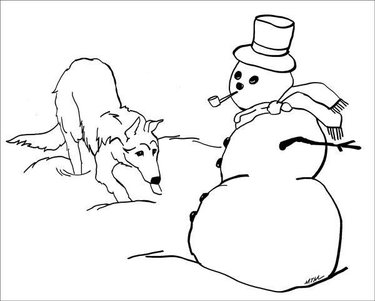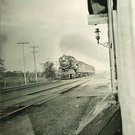Holidays are rich with lessons for dog owners
To the Editor:
As a dog lover and dog trainer, I look at the holidays as a time very rich in important lessons for dog owners or those who are about to embark on that partnership. For your family dog, or if you are adding a dog to your home, remember that the holidays cannot only up your stress levels but also your dog’s.
Provide a holiday haven.
Strangers coming to the house, package deliveries, tensions rising, unfamiliar and perhaps delicious smells providing temptations. If you know your dog is nervous around unfamiliar people, provide a safe place where he can retreat.
There is no reason your dog has to meet everyone especially if such contact may not be positive for dog or human. A crate is a haven to put in a quiet room but be sure to acclimate your dog to it and never use it as punishment.
You can feed your dog in there and provide nice chews that will have your dog associating that place with only good things. Explain to guests that your dog needs some space and perhaps a meeting later on when things are calmer would be a better idea.
Don’t let a holiday be ruined by an escape.
Be sure that everyone who comes through the door or answers it is careful not to let the dog out. Having a dog lost or, heaven forbid, injured or killed in an accident would not enhance your holiday experience.
To be even more on the safe side, be sure your dog always wears a flat buckle collar with identification. We put “reward” on one of our dog’s tags to improve chances of a call in the event he got away.
Keep the food safe from the dog and the dog safe from the food.
While it is a wonderful goal to train your dog to hang calmly while yummy food is being cooked, baked, and served, if your dog has not graduated from finishing school, use management such as baby gates to block access to cooking and serving areas; don’t leave food at eye level for dogs to help themselves to; and be especially careful to prevent access to foods that can be toxic to dogs such as chocolate, onions, avocado, and raw bread dough. See the ASPCA [American Society for the Prevention of Cruelty to Animals] website for a complete list.
Even foods that in small amounts are fine in large portions could cause a dog to become ill with pancreatitis or other gastrointestinal ills. Keep other tempting items such as gifts and decorations out of Rover’s way.
A tired dog is a good dog.
With all the preoccupation with the holidays, don’t forget your pal — for example, a nice run before guests arrive could set your dog and guests up for a wonderful experience.
Travel safely.
If you are traveling with your dog, make sure you have a safe place for her to ride — a crate in a car is a good bet. Again, remember the identification on the collars.
If you are planning to fly with your dog, make sure you check all airline rules way in advance of your departure.
And, if you are planning to leave Maxine behind, be sure you have checked out the references of the kennel or pet sitter you are using thoroughly to ensure that your dog will be safe and happy while you are away; leave emergency numbers; and provide the caretaker with your dog’s essential food, medications, toys, and a blanket or bed if possible.
Pets as gifts require forethought.
If you are planning to gift a canine this holiday, think carefully before you do so. Surprising an adult with such a gift is not a good plan for obvious reasons.
And, if you are “giving in” to your children’s demands, be sure you are up for this potentially 15-year-plus commitment as so often it’s the parent who will be responsible for the pet’s needs.
Bringing a new dog from a reputable breeder, rescue, or shelter into your home at this time is not advisable given the stress involved in adapting an animal to a new environment. When the home is calm, it’s disorientating enough for a dog, never mind the craziness of the season.
If you are set on the idea of a pet as a gift, perhaps give a leash or dog bowl instead and explain that the dog will come after the holidays when all is calm.
As someone who has been involved with rescue for most of my adult life, I urge you to save a life — the Capital District has many wonderful rescues and shelters with volunteers and staff members who are ready to help you choose a dog that will fit best in your home.
Socialization, socialization, socialization.
Finally, if you do adopt or purchase a puppy, socialization when the puppy is three to 12 weeks old is critical. While the old-fashioned advice was to isolate puppies until they had their second round of shots, research has shown that dogs that are not socialized sufficiently during this sensitive age will potentially mature to be fearful dogs.
You, as the dog’s owner-guardian-parent, should expose your dog to all manner of people, places, and things — not to overwhelm, of course, but to make positive associations so that your dog will mature to love all adults, children, and who will be confident around cars, bicycles, going to the vet, the groomer, hearing strange noises, etc.
Have great holidays with your dog, whether new or old.
Helene G. Goldberger
Berne

